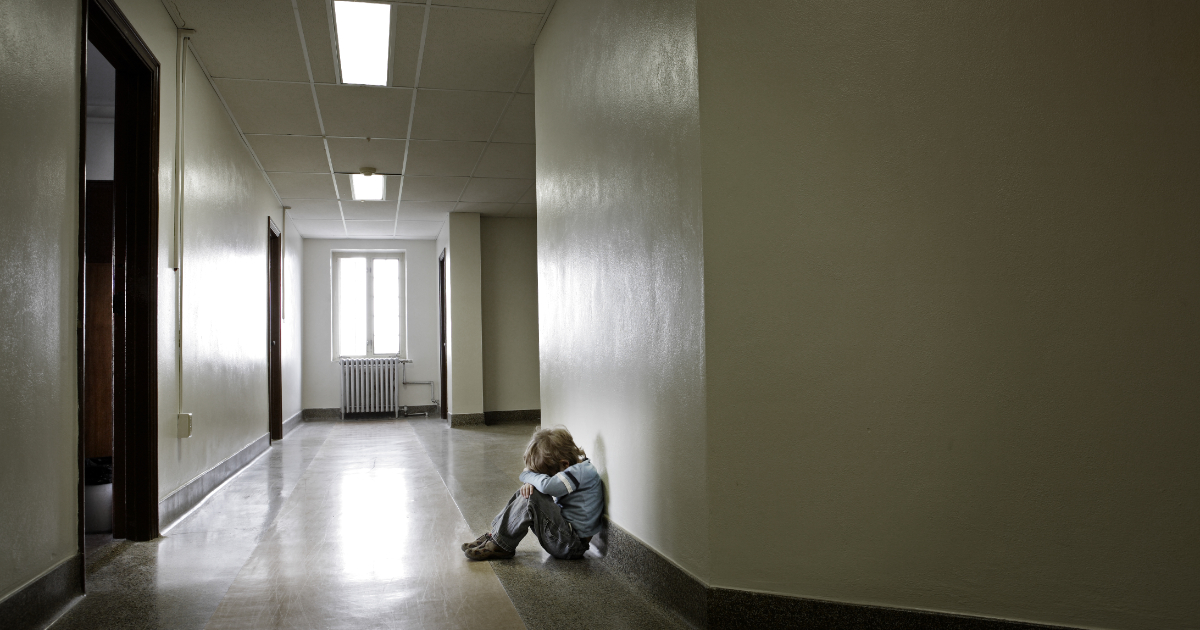Around 42 children are being permanently excluded from schools in England every single day.
Yep you read that correctly. 42 children a day. And 6 of these children are under the age of 11.
That works out as 7900 pupils every year (2017/2018 statistics produced by the DfE).
And another 78,900 pupils have been excluded for a few days but then allowed to return (called a fixed-term exclusion).
So some behaviour is so bad that schools are having to use their most serious sanction: exclusion. And use it often.
To find out why this is happening, I've dug into the surprising statistics to find out why children are getting excluded from school.
1. Persistent disruptive behaviour
Anyone who works in a school knows how those non-stop disruptive behaviours can prevent others learning.
Most of the time, pupils will respond to school’s behaviour systems and this behaviour is managed. But there will be some children who are disturbing the learning of the class all day, every day.
This could be by using inappropriate language, not following instructions or by bullying. Some headteachers (especially when faced with increased pressure from staff and parents) will say enough is enough and seek permanent exclusion.
2. Physical assault against a child
Over 1000 pupils in 2017/2018 were excluded for physical aggression towards another child.
These assaults may be a fight in the playground or a prolonged pre-meditated attack. The person in school who has to make the judgment call about how serious the physical behaviour is (and what sanction it merits) is usually the head teacher.
And in the end, such decisions usually come down to one basic idea: All students should feel safe at school.
If a pupil feels unsafe, because of another pupil, then a headteacher may choose to exclude (using either a fixed term or permanent exclusion).
3. Physical assault against an adult
845 pupils were excluded for hurting an adult who works in a school.
That’s 4 pupils a day who have hurt an adult so badly that the school has decided they have no other decision other than to exclude.
There were over 27,000 fixed period exclusions in the same year due to physical assault against an adult.
That's a lot of school staff getting hurt each year.
The impact of this shouldn't be underestimated. When staff feel physically threatened in the workplace, they may experience high levels of stress on a daily basis.
Over time, this may lead to:
- time taken off work because of the psychological impact of that stress
- a higher probability of illness in general (because long-term exposure to stress chemicals affects your body's ability to fight off infection)
So in the interest of protecting staff mental health, and to ensure they have a safe workplace, head teachers may use permanent exclusion.
Why are exclusion numbers so high?
Now let's look at some statistics driving those exclusions
1. Exclusion and special educational needs
Half of all pupils excluded from school have a special educational need.
Many of these pupils have Attention Deficit Hyperactivity Disorder, Autistic Spectrum Disorder or Attachment Disorder.
If these underlying needs are not met - or staff don't have access to good advice about working with the child's condition - teachers will be faced with increasingly challenging classroom behaviours.
Of course, some of these pupils' needs are best met in specialist provision or resource bases. But these can be hard to access in some areas. So many of these pupils stay in mainstream schools, where there isn't the manpower - or facilities - to meet their needs.
Meaning exclusion becomes predictable.
2. Exclusion and national testing
Schools are also under increasing pressure to perform well in national tests.
This will challenge those with SEND including those with learning disabilities. Many children will ‘act up’ and behave badly to disguise the fact that they can't do the work.
Then the education of everyone in the classroom suffers.
And to make the situation worse, budget cuts have meant that many teaching assistants who would have helped these pupils have been made redundant.
Not only would these assistants have supported children with their learning needs, but also put in place behaviour interventions to help pupils regulate their emotions and improve their ability to integrate into school life.
3. Exclusion and pupil demographics
Pupils entitled to free school meals (FSM) are four times more likely to be excluded than those who are not entitled to FSM.
Many of these children are not having their needs met at home (see our previous post 'How to get the best out of your pupils').
So whilst other children are focusing on flourishing academically, this group of children have quite different concerns. They're struggling to cope with emotional churn, Adverse Childhood Experiences (ACES) or even issues around basic physical care (e.g. 'I can't concentrate because I didn't have breakfast this morning and I feel hungry').
Many of the services that would have supported such families have seen significant cuts (or closed completely, as in the case of many Sure Start centres) in the last ten years.
Geoff Barton, general secretary of the Association of Schools and College Leaders said:
‘Exclusion rates have risen in recent years because of cuts to both education and local services which have made it more difficult to provide early intervention and support to children with challenging behaviour.’
Key takeaways
Exclusion remains a significant problem as we head into the next decade:
- The number of pupils permanently excluded from school has increased over recent years
- Most pupils are excluded due to their persistent disruptive behaviour or for physically assaulting a pupil or an adult
- Without the right practical advice about behavioural special needs, teachers are more likely to see challenging behaviour in the classroom
- Many pupils are not receiving the support and intervention that they need to be successful at school and to prevent them from being excluded

